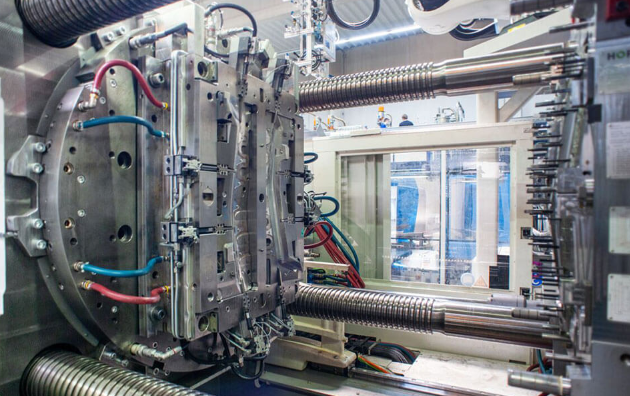
Custom injection molding is a specialized manufacturing process where injection molding is tailored to meet the specific requirements and specifications of a client’s unique design or application. This customization can involve a wide range of adjustments and special considerations to produce parts that meet precise functional, aesthetic, and performance criteria.
Key Aspects of Custom Injection Molding
- Tailored Design and Engineering
- Custom Mold Design: The molds (or tooling) are designed specifically for the client’s product, considering the unique dimensions, geometries, and features required.
- Material Selection: Custom injection molding often involves selecting the appropriate plastic materials that meet the specific mechanical, thermal, and chemical properties needed for the part.
- Specialized Process Parameters
- Injection Parameters: The injection molding machine settings, including temperature, pressure, and cycle time, are optimized for the specific material and part design.
- Quality Control: Customized quality assurance processes are implemented to ensure that the parts meet the client’s standards and specifications.
- Prototyping and Testing
- Prototype Development: Custom injection molding typically involves creating prototypes to validate the design, material choice, and manufacturing process.
- Testing and Validation: Rigorous testing is conducted to ensure the parts perform as required under expected conditions.
- Tooling and Mold Fabrication
- Custom Tooling: The molds are often highly specialized and designed with specific features such as complex geometries, undercuts, or multi-material capabilities.
- Mold Fabrication: Advanced manufacturing techniques, including CNC machining, EDM (electrical discharge machining), and 3D printing for conformal cooling channels, are used to create high-precision molds.
- Production Flexibility
- Low to High Volume: Custom injection molding can be adapted for both low-volume prototyping and high-volume production runs, depending on the client’s needs.
- Post-Processing: Custom parts may require additional post-processing steps such as painting, coating, assembly, or secondary machining.
[elementor-template id=”4330″]
Benefits of Custom Injection Molding
- Design Flexibility
- Complex Geometries: Allows for the creation of complex and intricate part designs that standard molds and processes might not be able to produce.
- Specific Features: Customization enables the incorporation of specific features such as threaded inserts, overmolding, and multi-material components.
- Enhanced Performance
- Material Properties: Custom injection molding allows the selection of materials that provide the necessary strength, flexibility, resistance, or other properties required for the application.
- Precision: Ensures high precision and tight tolerances, which are critical for parts that need to fit together perfectly or perform specific functions.
- Cost Efficiency
- Reduced Waste: Optimized mold design and process parameters reduce material waste and increase efficiency.
- Long-Term Savings: Although initial tooling costs might be higher, custom molds designed for efficiency and longevity can lead to cost savings over time through improved cycle times and reduced defect rates.
- Competitive Advantage
- Unique Products: Custom injection molding allows companies to produce unique, differentiated products that meet specific market needs.
- Branding: Custom parts can incorporate branding elements such as logos or specific design aesthetics, enhancing product recognition and value.
[elementor-template id=”4331″]
Applications of Custom Injection Molding
- Automotive Industry
- Production of specialized components such as dashboards, lighting systems, and engine parts that meet stringent safety and performance standards.
- Medical Devices
- Manufacturing of medical components and devices that require biocompatibility, precision, and cleanliness, such as syringes, implants, and diagnostic equipment.
- Consumer Goods
- Custom parts for electronics, appliances, and household items that require unique designs, functional features, and aesthetic appeal.
- Industrial and Aerospace
- Production of durable and high-performance components used in machinery, aircraft, and other industrial applications that require specialized materials and precise engineering.
Conclusion
Custom injection molding is a versatile and highly specialized manufacturing process tailored to produce parts that meet specific client requirements. It involves customized mold design, material selection, process optimization, and rigorous testing to ensure high-quality, precise, and functional parts. This approach offers significant benefits in terms of design flexibility, performance, cost efficiency, and competitive advantage, making it ideal for a wide range of industries and applications.
 DTG Mould Trade Process |
|
| Quote: | According to sample, drawing and specific requirement. |
|---|---|
| Discussion | Mold material, cavity number, price, runner, payment, etc. |
| S/C Signature | Approval for all the items. |
| Advance | Pay 50% by T/T |
| Product Design Checking | We check the product design. If some position is not perfect, or can not be done on the mould, we will send customer the report. |
| Mold Processing | Send report to customer once each week |
| Mold Testing | Send trial samples and try-out report to customer for confirmation |
| Mold Modification | According to customer’s feedback. |
| Balance Settlement | 50% by T/T after the customer approved the trial sample and mould quality. |
| Delivery | Delivery by sea or air. The forwarder can be designated by your side. |
 |
|

